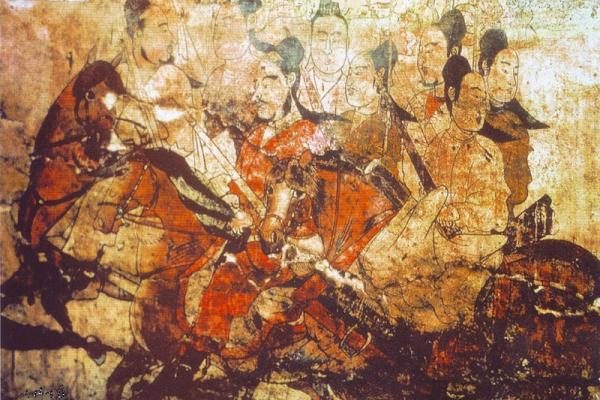
The Institute for Chinese Studies presents the "China in Transition" Lecture Series with:
Xiaofei Tian
Professor of Chinese Literature
Director, Regional Studies East Asia
East Asian Languages and Civilizations
Harvard University
"Writing Trauma and Violence: Yu Xin’s (513-581) 'Memory Palace'"
Flyer: ![]() Xiaofei Tian Flyer.pdf
Xiaofei Tian Flyer.pdf
Abstract: The study of trauma became prominent in the twentieth century with the rise of psychoanalysis and the outbreak of the World Wars, especially after the Holocaust; but the causes of trauma—war, death, violence, displacement—had appeared throughout human history. How does one remember a traumatic experience, write about it, and turn it into a work of literature? What happens when the received language of poetry resists the representation of pain and trauma? This talk focuses on these questions through examining the Hou Jing Rebellion and the fall of the southern empire in the mid-sixth century and their impact on the courtier and poet, Yu Xin (513-581), who spent the last years of his life as an exile in the north and wrote a poetry of loss and mourning.
Bio: Xiaofei Tian is Professor of Chinese Literature at Harvard University. She is the author of Tao Yuanming and Manuscript Culture, Beacon Fire and Shooting Star: The Literary Culture of the Liang (502-557), and Visionary Journeys: Travel Writings from Early Medieval and Nineteenth-century China. Her translation of a nineteenth-century memoir, The World of a Tiny Insect: A Memoir of the Taiping Rebellion and Its Aftermath, was awarded the inaugural Patrick D. Hanan Translation Prize in 2016. Her new book, The Halberd at Red Cliff: Jian’an and the Three Kingdoms, is forthcoming from Harvard University Asia Center Press in 2017. She is currently working on a book tentatively entitled Writing Empire, Writing Self in Early Medieval China.
Free and open to the public.
This event made possible in part by a U.S. Department of Education Title VI grant to The Ohio State University East Asian Studies Center and by OSU's Humanities Institute.
